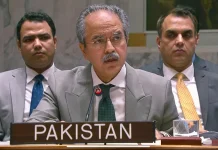By Fazal Amin Shinwari
In recent years, energy drinks have surged in popularity across Pakistan, touted as quick fixes for fatigue and performance enhancers. However, beneath their enticing promises lie complex health implications that have sparked widespread concern among health professionals and the public alike.
According to the World Health Organization (WHO), Energy drinks typically pack a potent mix of caffeine, sugar, guarana, and taurine. These ingredients offer a temporary energy surge but can also trigger adverse effects such as increased heart rate, insomnia, and nervousness, particularly with excessive consumption. The high acidity of these beverages also raises concerns about dental erosion over time.
Health Concerns: Regular consumption of energy drinks has been linked to various health issues, including cardiovascular complications and potential interactions with medications. This poses a significant risk, especially for younger consumers and individuals with pre-existing health conditions.
Impact on Teenagers: Teenagers, in particular, face heightened risks due to their sensitivity to caffeine and susceptibility to sleep disturbances and jitteriness. Experts recommend limiting or avoiding energy drinks altogether, emphasizing healthier alternatives like water, fruits, or snacks rich in complex carbohydrates and protein.
Despite these concerns, the regulation of energy drinks in Pakistan remains a contentious issue. With their increasing availability and aggressive marketing aimed at young adults and athletes, there is growing debate over implementing stricter guidelines to safeguard consumer health.
As Pakistan grapples with the growing prevalence of energy drinks, balancing their potential benefits against health risks remains a critical challenge. Stakeholders, including health authorities, beverage manufacturers, and consumers, are urged to collaborate on informed policies and public education initiatives to promote safer consumption practices.











